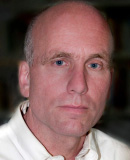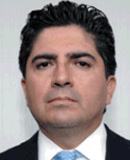17 November 2011
View Webinar Content
Presentation—Introduction to the webinar and presenter
Presentation—The Smart Grid Maturity Model
Presentation—Smart Grids in Mexico
Transcript—Webinar audio transcript
Internationally, policymakers and grid operators have unique local priorities that drive the deployment of smart grids. Understanding how these priorities shape the real-world impact of smart grids is of key importance to all stakeholders. The Smart Grid Maturity Model (SGMM) a management tool to help utilities develop a smart grid vision and roadmap; communicate and refine the vision with internal and external stakeholders; and measure their progress in smart grid implementation. In this webinar-based training, we:
- Introduce the model (SGMM)
- Present a case study of its use in Mexico
- Discuss how it could be useful as a shared framework for international smart grid cooperation among utility and policy stakeholders in ISGAN member nations.
Panelists
 Austin Montgomery
Austin Montgomery
Austin Montgomery of the Carnegie Mellon University Software Engineering Institute (SEI), which hosts the SGMM with the support of the US Department of Energy, provides an overview of the model and how utilities and other stakeholders around the world are using it. SEI collaborates with government and industry to address security, architecture, interoperability, process improvement and other software and systems engineering challenges of grid modernization.
 Francisco Acosta
Francisco Acosta
Industrial Technologies Program
Francisco Acosta, Chief Modernization Officer of Comisión Federal de Electricidad (CFE), Mexico's national utility, describes how CFE has used the SGMM in its smart grid roadmapping and planning efforts. Acosta is in charge of the commercialization of telecomm services through CFE Telecomm, information technologies and all modernization initiatives. He has participated as a consultant on environmental economics for the Harvard Institute for International Development and on regulatory reform for the Organization for Economic Cooperation and Development (OECD) in Paris.
